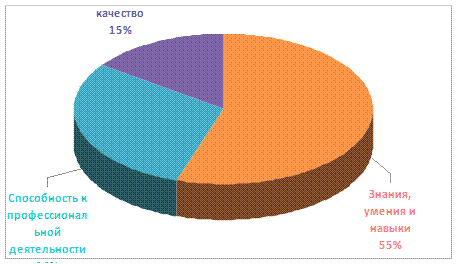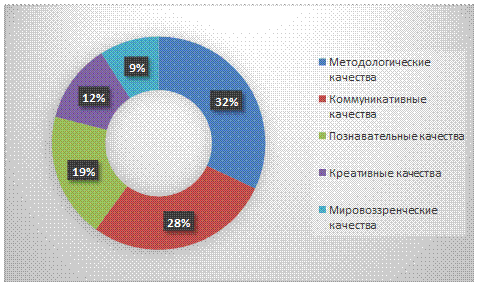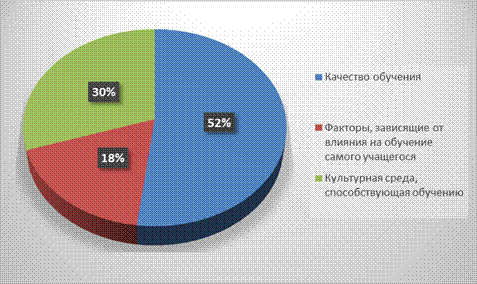
Заглавная страница Избранные статьи Случайная статья Познавательные статьи Новые добавления Обратная связь КАТЕГОРИИ: ТОП 10 на сайте Приготовление дезинфицирующих растворов различной концентрацииТехника нижней прямой подачи мяча. Франко-прусская война (причины и последствия) Организация работы процедурного кабинета Смысловое и механическое запоминание, их место и роль в усвоении знаний Коммуникативные барьеры и пути их преодоления Обработка изделий медицинского назначения многократного применения Образцы текста публицистического стиля Четыре типа изменения баланса Задачи с ответами для Всероссийской олимпиады по праву 
Мы поможем в написании ваших работ! ЗНАЕТЕ ЛИ ВЫ?
Влияние общества на человека
Приготовление дезинфицирующих растворов различной концентрации Практические работы по географии для 6 класса Организация работы процедурного кабинета Изменения в неживой природе осенью Уборка процедурного кабинета Сольфеджио. Все правила по сольфеджио Балочные системы. Определение реакций опор и моментов защемления |
Students’ key komprtence as a factor of successfulness in the sphere of professional aktivity
Competent, professionally prepared graduates of higher educational institutions are the human capital able to heighten effectiveness of the social and economical sphere of any country. The beginning of the XXI century can be assessed as the period of formation of the information society, in which leading role in all spheres of public life is played by knowledge, information, computer technology and knowledge of their people. The well-being of any developed country increasingly depends on intellectual and cultural level and moral qualities of its citizens formed on the basis of the quality of education and upbringing of the generation. The basis of the welfare of the country, and, consequently, the quality of life of its citizens is determined by such economic categories as: − volume of real income per capita; − volume of consumption; − GDP per capita, etc. The level of all these indicators depends on the efficiency of a particular economy, which in the modern difficult conditions of the world market must be based on efficient material production. In turn, the production efficiency is characterized by such indicators as: − labour productivity; − the competitiveness of products; − consumption of resources, capital intensity and the cost of production; − the payback period of labour, etc. And yet the foundation of any enterprise are people, because you can have new equipment on the production, apply new technologies and methods of production, but it will not give results if a company does not have qualified personnel. This explains the fact that in today's rapidly changing world requirements for education and professional training have increased significantly. It is the "human capital" which is critical to the economic growth, particularly in our country [1, р. 7]. Therefore, competent graduates able to work effectively in the new dynamically changing socioeconomic conditions become more and more popular. In the process of their training the dominant role belongs to the orientation on the personality and competence, which allows reducing the period of mastering of the profession and increasing the competitiveness of students. For the first time the concept of "competence" began to spread American economist R. Boucis. He developed it in his research, which found that successful specialist differs from the less successful one not one single factor but a whole set of factors, which includes the motives, experience and behavioural characteristics. R. Baucis defined competence as the ability of a person to behave in such a manner this would satisfy the requirements of professional activity in a specific organizational environment, which, in turn, would cause the desired results [2 р.5] However, after the study of R. Boucis on competence there were many alternative interpretations of this term and there were different points of view on what this concept means and how it can be applied. There are some definitions of the term competence below.
Competence develops in the process of compiling cognitive things, human activity and personal experience of the student — future specialist. It is therefore imperative that the students have to form a view about the nature of professional competence. This will become the basis for adjustments to individual study plans. To study the formation and contents of perceptions of competence in students, and developing recommendations for the correction of the studied concepts, we conducted a survey of students of 2-3 courses of the Siberian Automobile and Highway Academy. The survey was attended by about 50 people. The first item in the questionnaire offered to the students concerned the nature of "competence" (Fig.1). It was an open question, i.e. respondents were asked to formulate their own definition of competence. It should be noted that students experienced some difficulties in answering this question, could not give the wording, without resorting to online sources (about 15% of respondents did not answer this question). The majority of survey participants described professional competence through one or two characteristics. Possible to be divided into three groups: Competencies as knowledge, skills and abilities (the knowledge, skills, possession of the subject theoretical training); competence as the ability of professional activity (the ability to work in the specialty, ability to work effectively, professionalism, ability to perform professional duties); competence as a personal quality (the ability to master new skills, independence, initiative, aspiration for professional achievements). Thus, in a broad sense, competence is represented as a set of knowledge, abilities, and skills to perform specific professional tasks in any field of activity, achieving the highest results. Competence is interpreted as a generalized description that includes personal qualities that must be developed.
Fig.1. The term’s «competence» compounds
The purpose of the second question of the questionnaire is to concretize the students ' understanding of the structure of professional competence. From the list of personal qualities and characteristics of professional activity the students were asked to choose five most important and arrange them according to the degree of decreasing importance. The result is as follows: the majority of respondents claim that the most important characteristic of personal qualities in the structure of competence is "methodological quality" (32%) – the ability to put goals and organize their achievement, self-awareness and self-esteem. Second place took "communicative quality" (28%), due to the need to interact with other people, with objects of the surrounding world and its information flows; the ability to search, transform, and transmit information; to perform various social roles in the group and the team, to use modern communication technologies (email, Internet). The third position is occupied by "educational quality" (19%) – the ability to feel the world, to ask questions, to find the causes of phenomena, to mark their understanding or misunderstanding of the question
On the penultimate position was "creative quality" (12%) - the inspiration, imagination, mental flexibility, sensitivity to contradictions, the presence of one’s own mind. "Ideological quality" (9%), defining emotionally and holistic installations of a student, the ability to define the own place and role in the world, patriotic and tolerant personality traits scored the lowest number of votes (Fig. 2). The third question was about the factors of formation of professional competence of students. The respondents were asked to rate on a five point scale the importance of factors of development of key competences in the process of their professional formation (Fig. 3).
Fig. 2. Structure of the professional competence
In total, three groups of factors are marked out. The most significant factor students consider the quality of University education that includes practice based learning; "strong" teaching staff who provide training. In second place there is the cultural environment conducive to learning: good material facilities of the University; the choice of subjects, the satisfaction in modern technical equipping of classrooms and laboratories. Further follow factors that depend on the impact on learning of the learner: motivation of educational activity, focus on success; gaining experience of independent professional activity. The survey showed that about half of the students put on the first place in the development of professional competence the teacher in process of the transmission of knowledge, skills and abilities, not taking responsibility on their own for the quality of their education. Students are insufficiently aware of the fact that in the today’s society based on knowledge, the ability to continuous self-education and development of competence is more important than ready-made knowledge, which is acquired at a particular point of time. Thus, according to the survey it can be concluded that by the students of the Siberian Automobile and Highway Academy are incomplete and not clearly formed ideas about the nature of professional competence and its role in their future professional sphere of activity. This can lead to the fact that professional competence will not act as a conscious training. As noted by the Roman philosopher Seneca: "Who does not know which harbour to sail to, there is no favourable wind for." That is, in the absence of clearly defined goals it is almost impossible to predict the end result of educational activity and the process of formation of competence can become chaotic and haphazard.
Fig. 3. Factors of the professional competence formation
In conclusion, I would like to note that, higher education is a very important life stage of socialization of a person, which enables students to understand themselves and their place in life. Taking into account the different interests of students, one can generate variable programs that take into account the capabilities and professional competence of students. Considering the social policies of Universities and observing the latest trends of education, you can come to the conclusion that the purpose of higher education is a continuous process of training on the competence approach as the basis of modern education. Currently all higher education institutions responsible for educating and upbringing the younger generations are to improve the quality management system of education, it is necessary to create all conditions for the development of a freely thinking, active, socially-adapted personality. There is an urgent need to form a specific set of core competencies for each profession or specialty. The development of key competences in general allows you to connect and practically apply all the elements – the knowledge, skills, values, abilities, experiences, etc. The today's University graduate has to be a qualified specialist capable of innovative thinking and practical implementation of acquired knowledge [3.р.3]. Научный руководитель – Сидорова Т.П., ст. преподаватель кафедры «Иностранные языки», СибАДИ, Омск. Библиографический список
1. Issina D. J., Bayda, E. A. Standards of ISO 26000 – instruments of corporate social responsibility of organizations / Issina D. J., E. A. Bayda // Architecture, construction, transportation, materials of the International scientifically-practical conference (to the 85th anniversary of the "SibADI"). - Omsk, 2015. - P. 1564-1568. 2. Michael Armstrong. Human resources management/ Book of the publishing house "Peter" 825 P.- S. 8th ed. 2004 URL: http://uchebnik.online/upravlenie-personalom-uch/ponyatiya-kompetentnosti-kompetentsii-28628.html (accessed: 23.03.2016) 3. V. P. Pokholkov,A. I. Chuchalin Quality Management in higher education – M.: Logos, 2005. – 208 p.
УДК 81 студенты Карпов П.А., Федорова К.В. Сибирская государственная автомобильно-дорожная академия (СибАДИ), Омск. Abstract. Now the world has witnessed the globalization process – emergence of hybrid world culture, the mixing of national traditions, strengthening of cooperation between Nations. With the development of international business contacts, development of new foreign technologies and the expansion of professional cooperation with foreign experts has increased the need of individual regions of Russia for specialists who speak foreign languages. Аннотация. Сейчас в мире наблюдается процесс глобализации – возникновения гибридной мировой культуры, смешения национальных традиций, усиления сотрудничества между нациями. С развитием международных деловых контактов, освоением новых зарубежных технологий и расширением профессионального сотрудничества с иностранными специалистами возросла потребность отдельных регионов России в специалистах, владеющих иностранными языками. Ключевые слова: общество, иностранные языки, глобализация, культура, традиции. Key words: society, foreign languages, globalization, culture and traditions.
|
||||||||||||||||||||||
|
Последнее изменение этой страницы: 2016-12-16; просмотров: 780; Нарушение авторского права страницы; Мы поможем в написании вашей работы! infopedia.su Все материалы представленные на сайте исключительно с целью ознакомления читателями и не преследуют коммерческих целей или нарушение авторских прав. Обратная связь - 18.220.115.192 (0.016 с.) |






